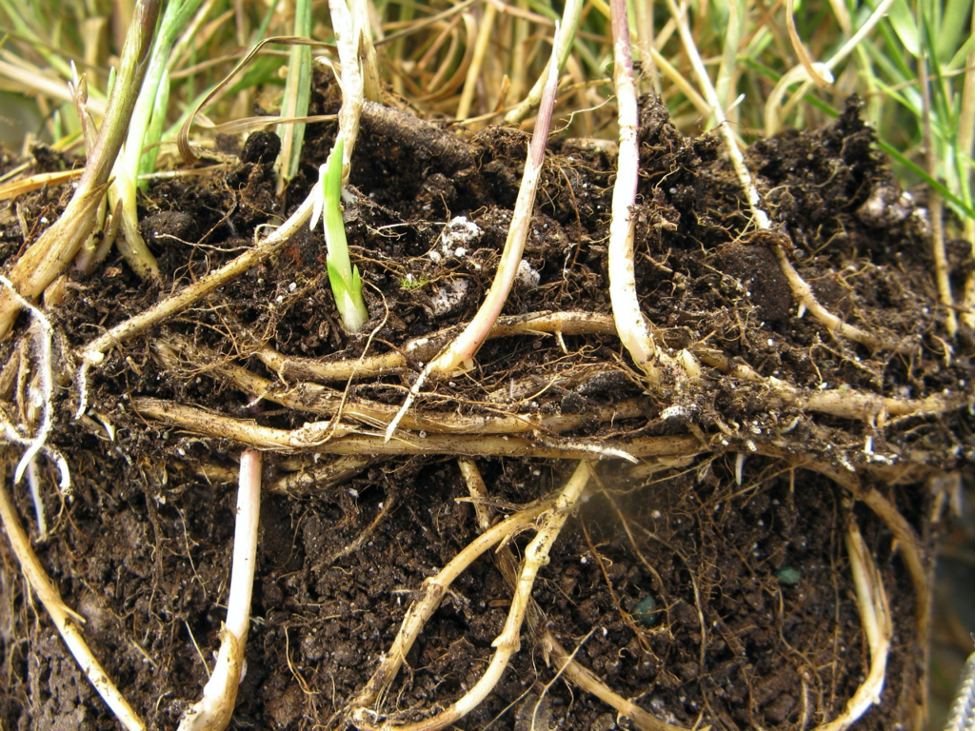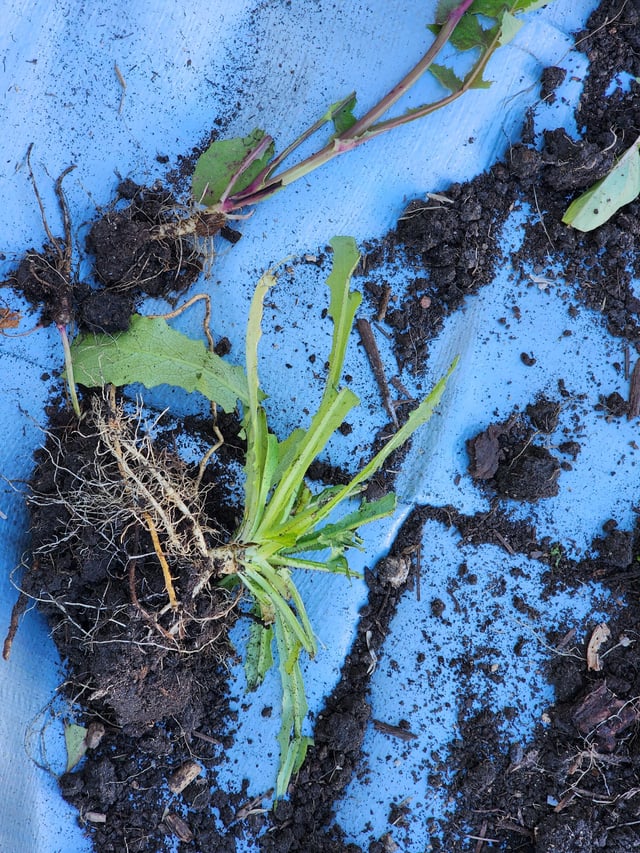As an Amazon Associate, I earn from qualifying purchases.
Weeds with deep roots are harder to remove because they anchor firmly in the soil. These weeds often regrow if not fully extracted.
Weeds with deep roots present a significant challenge for gardeners and landscapers. Their robust root systems allow them to access nutrients and water from deeper soil layers, making them resilient. Common examples include dandelions, thistles, and dock. These weeds can outcompete desirable plants, leading to reduced crop yields and less attractive lawns.
Effective management involves persistent efforts, including mechanical removal and the use of appropriate herbicides. Early identification and consistent control measures are crucial to prevent these invasive plants from taking over. Understanding the characteristics of these weeds helps in developing effective strategies to manage and eliminate them.
Introduction To Deep-rooted Weeds
Deep-rooted weeds have roots that grow far into the ground. These roots can be very strong. They help the weeds survive in tough conditions. Deep roots make it hard to remove these weeds. They often come back even after pulling them out. These weeds can take nutrients and water from other plants. This makes them a problem for gardens and farms.
Some common deep-rooted weeds include:
- Dandelions: Known for their yellow flowers and fluffy seeds.
- Bermuda grass: A tough grass that spreads quickly.
- Bindweed: A vine that wraps around other plants.
- Thistle: Has sharp spines and deep roots.
Ecological Impact
Weeds with deep roots can improve soil health. These roots dig deep into the earth, bringing nutrients to the surface. The soil becomes more fertile and healthy. Deep roots help break up hard soil. This allows air and water to enter the soil more easily. As a result, plants can grow better.
Deep roots also help with water retention. They create channels in the soil, allowing water to seep in. This helps prevent soil erosion and keeps the soil moist. Plants can access water more easily. This is especially important in dry areas. Deep roots make the land more sustainable.
Agricultural Challenges
Weeds with deep roots compete fiercely with crops. They take up essential nutrients and water. This reduces the growth of crops. Farmers find it hard to manage these weeds. They need special tools and techniques. Deep-rooted weeds often survive harsh conditions. This makes them even tougher to control. Crop yield can drop significantly due to these weeds. This impacts the farmers’ income and food supply.
Deep-rooted weeds absorb more nutrients from the soil. This leaves less for the crops. Nutrient depletion weakens the soil over time. Crops struggle to grow in nutrient-poor soil. Farmers may need to use more fertilizers. This increases the cost of farming. The soil’s health declines with persistent weed problems. Healthy soil is vital for good crop production.

Economic Consequences
Weeds with deep roots significantly impact agricultural productivity, leading to increased costs for farmers. These persistent plants reduce crop yields and demand more labor for removal.
Yield Reduction
Weeds with deep roots reduce crop yields. They compete for water and nutrients. This makes it hard for crops to grow. Farmers get less produce. Less produce means less money. Weeds can damage crops too. Damaged crops are worth less at the market. This hurts farmers’ income.
Increased Management Costs
Managing deep-rooted weeds costs a lot. Farmers need special tools. These tools are expensive. More labor is needed too. Labor costs can add up quickly. Chemicals are also used to kill weeds. These chemicals are costly. All these extra costs affect the farm’s budget. Higher costs mean less profit for farmers.
Environmental Benefits
Weeds with deep roots help in controlling soil erosion. These roots hold the soil together tightly. This prevents the soil from being washed away by water or wind. Farmers and gardeners value these weeds for their soil-stabilizing properties. They reduce the loss of topsoil, which is rich in nutrients. Strong roots can also improve soil structure over time. This makes the ground more resistant to erosion.
Weeds with deep roots are important for wildlife. They create habitats for small animals and insects. Birds and other creatures find food and shelter among these plants. The deep roots also help retain moisture in the soil. This provides a better environment for various species. Weeds can support biodiversity in gardens and wild areas. They play a crucial role in maintaining healthy ecosystems.
Control And Management Strategies
Using mechanical methods can help control weeds. Digging up weeds with tools like hoes or shovels is effective. Pulling weeds by hand is another method. Make sure to remove the entire root. This prevents the weed from growing back. Mowing can keep weed growth under control. Weeds with deep roots require special tools. Use weed pullers designed for deep roots.
Chemical treatments involve using herbicides. Herbicides kill weeds quickly. Choose the right herbicide for the weed type. Follow the instructions on the label. Spraying herbicide on the weed’s leaves works well. Be careful not to spray other plants. Use protective gear when handling chemicals. Herbicides can be harmful to pets and humans. Store chemicals in a safe place.
Innovative Solutions
Biological controls can help manage weeds with deep roots. They use natural enemies like insects or fungi. These enemies target the weeds and reduce their growth. This method is eco-friendly and safe for other plants. Farmers often prefer this over chemical herbicides.
Integrated Weed Management (IWM) combines various methods to control weeds. It uses cultural, mechanical, and biological practices together. This approach helps in reducing weed resistance. Rotation of crops is one effective IWM technique. Crop rotation prevents weeds from adapting to one type of crop. Mulching can also help by blocking sunlight to weeds. These combined methods make weed control more effective.

Future Research Directions
Exploring the potential of weeds with deep roots offers opportunities to enhance soil health and combat erosion. These resilient plants could revolutionize sustainable agriculture by improving nutrient cycling and water retention.
Genetic Studies
Scientists focus on the genetic makeup of weeds. They aim to understand why some weeds have deep roots. By studying their DNA, researchers hope to find key genes. These genes might control root growth. Knowing these genes can help develop better weed control methods. It can also help in breeding crops that can compete with weeds better.
Sustainable Practices
Farmers are looking for ways to control weeds without chemicals. One method is using cover crops. These crops can prevent weed growth. Another method is crop rotation. It disrupts weed life cycles. Also, farmers use mulching to block sunlight. This stops weeds from growing. Biological control is another method. It uses natural predators to eat weeds. Sustainable practices help protect the environment and reduce costs.
:strip_icc()/dock-broadleaf-perennial-weed-detail-4886d0f9_0-f04f95f36ce54c8aa6c8a47cdafb02f3.jpg)
Frequently Asked Questions
What Are Weeds With Deep Roots?
Weeds with deep roots are plants with extensive root systems. These roots grow deep into the soil, making them hard to remove.
How Do Deep-rooted Weeds Affect Gardens?
Deep-rooted weeds compete with garden plants for nutrients and water. They can also damage underground structures.
Why Are Deep-rooted Weeds Hard To Remove?
Deep-rooted weeds are hard to remove because their roots grow deep. This makes manual removal difficult and often incomplete.
Which Common Weeds Have Deep Roots?
Common deep-rooted weeds include dandelions, thistles, and dock. These weeds have robust root systems that penetrate deeply into the soil.
Conclusion
Tackling weeds with deep roots requires persistence and the right techniques. Regular maintenance prevents them from regrowing. By understanding the nature of these weeds, you can manage your garden effectively. Keep your garden healthy and weed-free with consistent effort and knowledge.
Happy gardening!

